Here we share some constipation relief for baby strategies and some of the best foods for constipated newborns, toddlers and kids to help them poop.
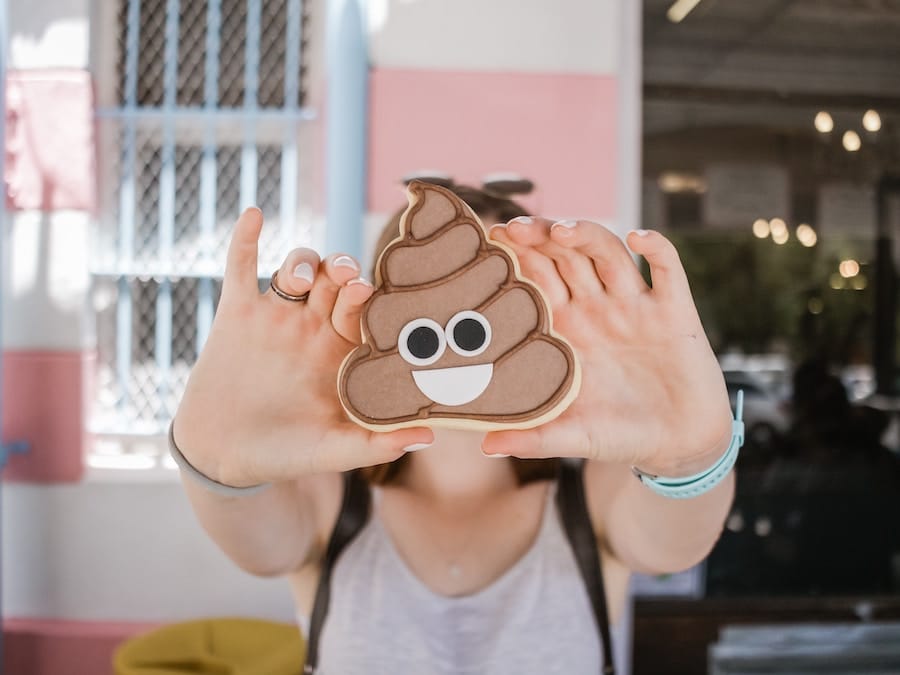
Read through most of my texts with my husband and at least 50% of them have to do with E’s poop. Has he pooped? What colour is the poop? Was said poop dry, runny, messy? Trust me, there’s a lot of great conversations that can be had about poo. So the moment our regular poop schedule (and therefore text trail) becomes irregular, we get a wee-bit nervous. Constipation sucks for all of us, but baby constipation is the WORST. There is nothing more heartbreaking than watching your kid go blue in the face trying to squeeze one out only to erupt into a fit of tears. Honestly bud, I’ve been there (hello postpartum constipation), it totally sucks.
So let’s get down with some constipation relief for baby strategies and some of the best foods for a cranky constipated newborn, toddler or kid.
Baby Poop 101
First, let’s start with the basics and discuss what a normal healthy poop looks like.
How Often Should Your Baby Poop
1- 4 Weeks after Birth
A one to four-week formula-fed baby will generally poop two to three times a day, while a breastfed baby may poop four times a day.
2 months to 3 years of age
As your baby gets older, the number of poops decreases to approximately one to two poops a day, and really this number can be super variable depending on the child. As with adults, its more about regularity than it is about a finite number.
What Does a Normal Baby Poop Look Like?
There isn’t one way your baby’s poop should look like because it depends on several factors, however there are a few common types that you can refer to. If your baby is exclusively breastfed, their poop will typically look more runny compared to formula-fed babies. But before a babe is on solids it will range in colour from shades of brown, tan, yellow and green. Nothing really to be alarmed about here.
Once your baby starts solids, their poop will come in different colours and textures. Trust me, I’ve seen some interesting things in the past few months. This is because their gut is adjusting to the introduction of solids. Instead of the usual runny mustard-looking poops, you’ll start to see more firmer adult-like poops (maybe even with some bits of food) and they’ll be accompanied by some WICKED scents. Like honestly, get a gas mask and a really good diaper pail, you do NOT want to just put one of those bad boys in a regular bin.
Alright, now that we’ve gotten that fun stuff out of the way, let’s talk about baby constipation and how to know if your baby’s bowel movements are normal.
How to Know if My Baby is Constipated?

Constipation is often defined by the lack of frequency of poops, but it is also described by the consistency of poops. Baby constipation can often be identified when the poop is hard and dry, and is (seemingly, since they often can’t tell us explicitly) difficult or painful to pass. In my experience, it’s really easy to know when Baby E is constipated because I hear him grunting, holding his breath and turning red as he bares down to push, and he then usually is very cranky and upset when it doesn’t come. Ugh it breaks my heart.
Why is My Baby Constipated?
So why might your baby be constipated? There could be a number of reasons depending on what’s going on and if we’re talking about a newborn, toddler or fully grown kid.
One of the first major reasons for baby constipation is the addition of solids to their feeding regime. Don’t forget that babies who have previously been only drinking breastmilk or formula have to let their gut adjust to digesting new bigger pieces of real food. Even adding new foods to an already eating baby can cause some temporary distress.
Other major reasons usually revolve around changes to schedules, environment (like starting day care), and travel – basically just like us!
Best Constipation Relief for Baby Strategies
Tummy Massage

If you’ve got a young baby who has yet to start solids, your options are honestly limited for what they can be given. Massage is usually your best bet for that baby constipation! Giving your baby a gentle belly massage can help to stimulate their bowels to pass a bowel movement. A popular tummy massage for babies is called the “I Love U” method. Here’s how to do it:
- Lay your baby on their back on a clean floor facing you
- Say “I” as you use your index finger and middle fingers to draw the letter “I” on your baby’s left side
- Draw an upside down “L” on baby’s right side, across the top of the tummy and down baby’s left side
- Then draw an upside-down U
- To finish, rest your hands on your baby’s abdomen, encouraging baby to release any tension in their tummy
Fluids for Baby Constipation
If your baby is under six months, there is no need to give them fluids aside from breastmilk or formula. But if you’ve just started solids, you will want to make sure you’re regularly offering water to help move things along. It is recommended you offer babies six to twelve months about 2 to 3 ounces (or 60-90 mL) at a time.
Get Your Baby Moving
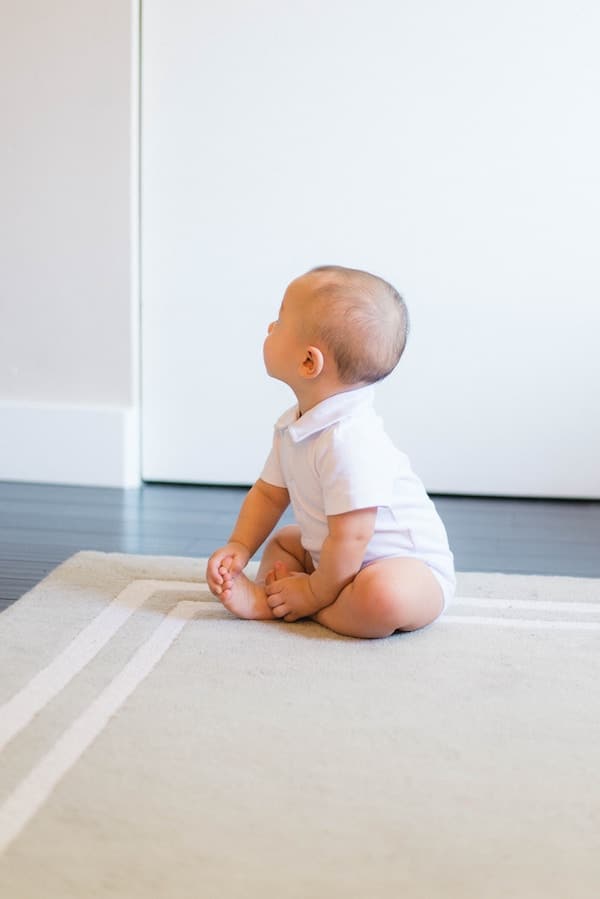
A lot of us adults find we get backed up when we’ve been less active than normal, and the same goes for out little tots. Obviously they can’t hit the gym or go for a sweaty spin class, but encourage them to crawl, walk and kick as much as they can. The Jolly Jumper was KEY for us around here! If your baby is really young and not doing much moving independently yet, try moving your baby’s legs in a bicycle movement to get things rolling.
Best Foods to Help with Constipation Relief for Baby
If your baby has started solids, you’ll want to focus on foods rich in fibre. Here are some great baby friendly options for relieving baby constipation.
Vegetables
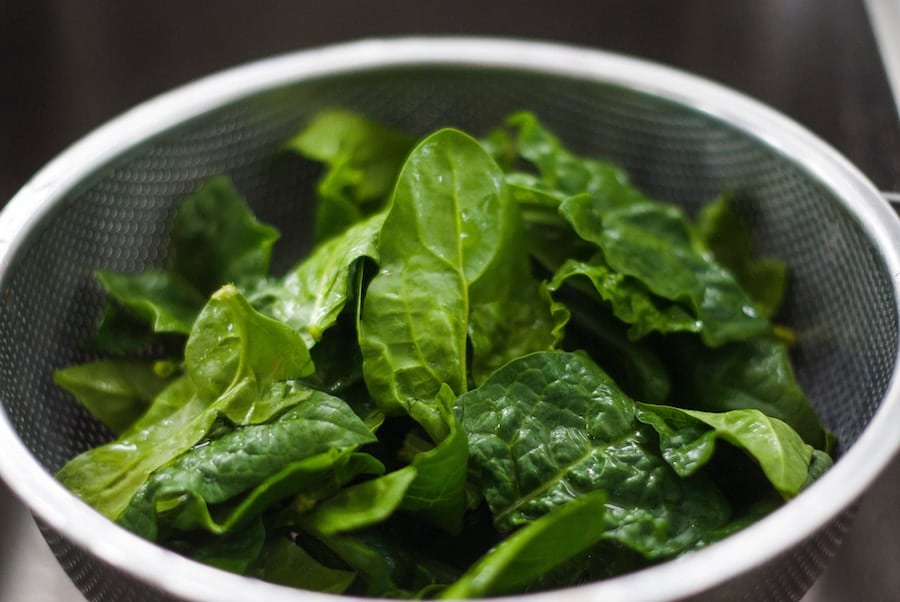
Spinach (pureed into pancakes or fritters)
Broccoli (steamed or roasted)
Artichokes (jarred and rinsed to remove excess salt)
Peas (pureed or steamed whole)
Potato (baked or mashed)
Sweet potato (baked or mashed)
Fruit
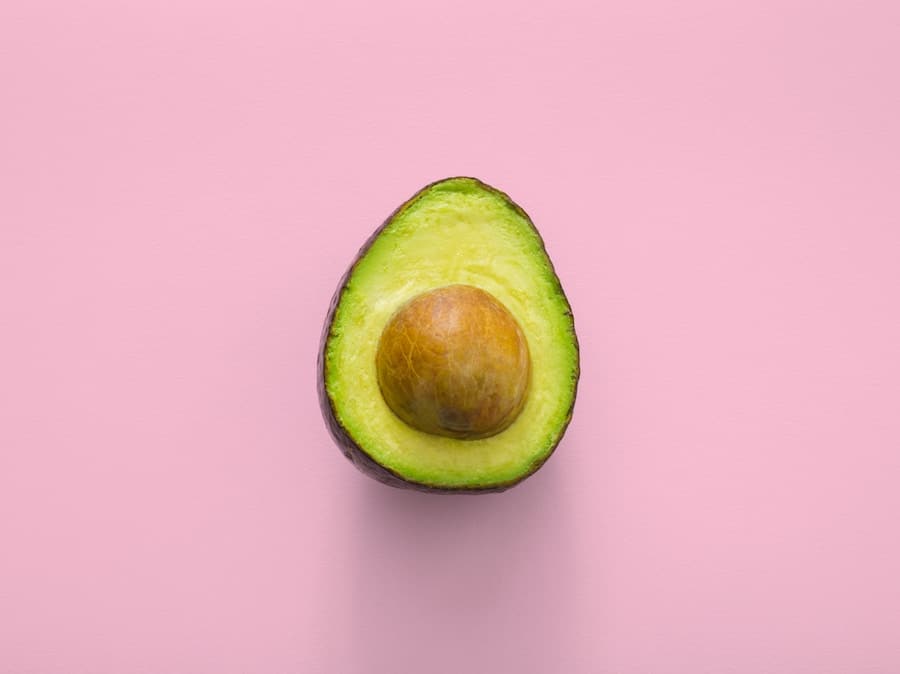
Prunes (pureed, or stewed)
Avocado (sliced or mashed)
Blackberries (halved)
Pears (cooked or pureed)
Apples (cooked or pureed)
Raspberries (halved or whole)
Kiwi (sliced)
Figs (quartered)
Grain Products
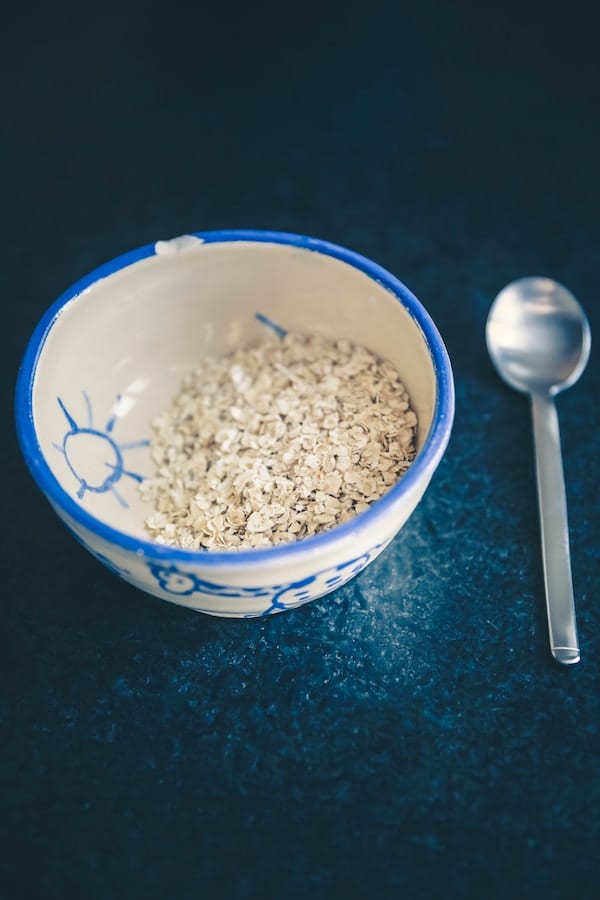
Bran-based cereal (cooked with water or breast milk)
Oatmeal
Quinoa
Meat Alternatives
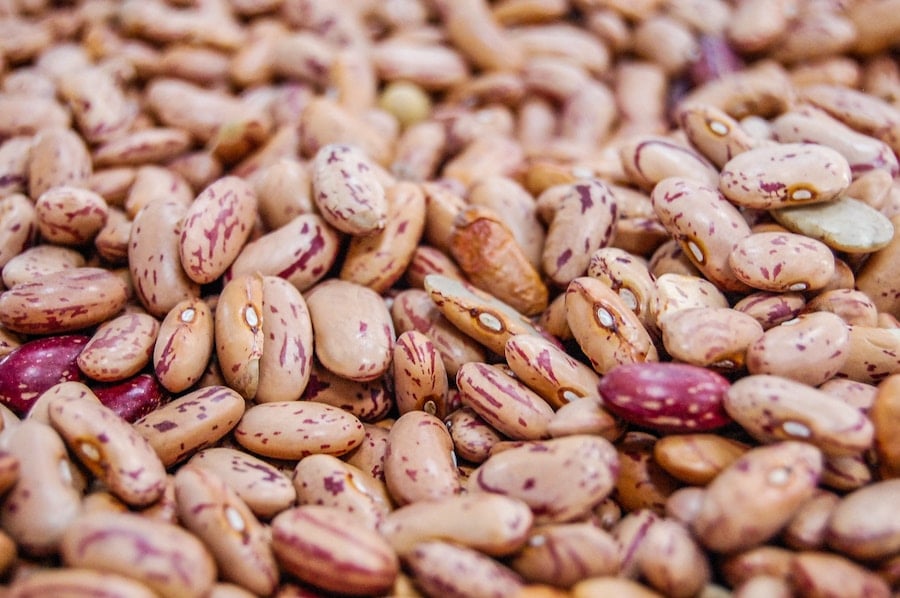
Almond Butter
Beans (cooked or pureed)
Chickpeas (cooked or pureed)
Edamame (pureed or steamed)
Lima beans (pureed or steamed whole)
Lentils (cooked and pureed or added to fritters or pancakes)
Flax seeds (added to baked goods)
Hummus
Split peas (cooked and pureed)
When introducing those fibre rich foods, be sure to incorporate them into their diet slowly so as not to shock their system and worsen their constipation. Here are some creative ways to use these high fibre foods in their meals.
- Add berries, or grated carrots, zucchini, apples, and pears when making muffins, breads or pancakes
- Add vegetables to casseroles, soups, pasta sauces, and pizza
- Add sliced fruit or berries to cereal or oatmeal
- Sprinkle oat bran and flax into fruit sauce, casseroles, patties, yogurt, dips or sauces
- Use whole wheat flour, whole grains or bean puree when baking
- Add bean, lentils, peas or chickpeas to soups, sauces and chilli
- Serve hummus or other bean dips with whole grain breads or crackers
Probiotics
Some research has found that specific strains of probiotics can help treat baby constipation. In this randomized controlled trial, the administration of lactobacillus strain of bacteria in infants with chronic constipation improved their bowel movement frequency. A more recent 2017 systematic review showed that probiotics increased stool frequency and had beneficial effects in Asian children, however the authors caution these outcomes and that more evidence from larger samples is needed before we can make these recommendations. Be sure to speak to your baby’s pediatrician about the use of probiotics to make sure it will be helpful for you.
What You Should NOT Use for Constipation Relief for Baby
So now we know some useful strategies for combating baby constipation, now let’s talk about some things you may want to avoid.
Typically Constipating Foods
Low fibre foods like white rice, white bread and pasta can bind babies up. Other foods like apple sauce, bananas and cereal could also cause baby constipation. While these foods may have caused your baby’s constipation it’s not recommended to cut them out altogether for ever. Instead, cut back until things get moving again, and then continue to offer these foods in moderation alongside other sources of nutritious fibre.
Sensitive Foods
Watch out for specific foods that your baby may be sensitive too. When introducing solids, take note of which new foods your baby is trying and whether they have any digestive issues afterwards. They may honestly not have anything to do with the problem, so you don’t want to jump the gun and eliminate these foods prematurely, but just keep an eye at reoccurring offenders and speak to your doctor or dietitian about an appropriate course of action to take.
Fibre Supplements
Avoid any type of fibre supplements that you would often maybe see advertised for regularity to try to treat your baby’s constipation. Fibre supplements (both pills and powders) are not designed for babies and will likely just fill them up without any calories. The result is that you could be risking serious malnutrition. Our tip is to offer more calorie-rich, high-fibre rich foods instead.
Laxatives
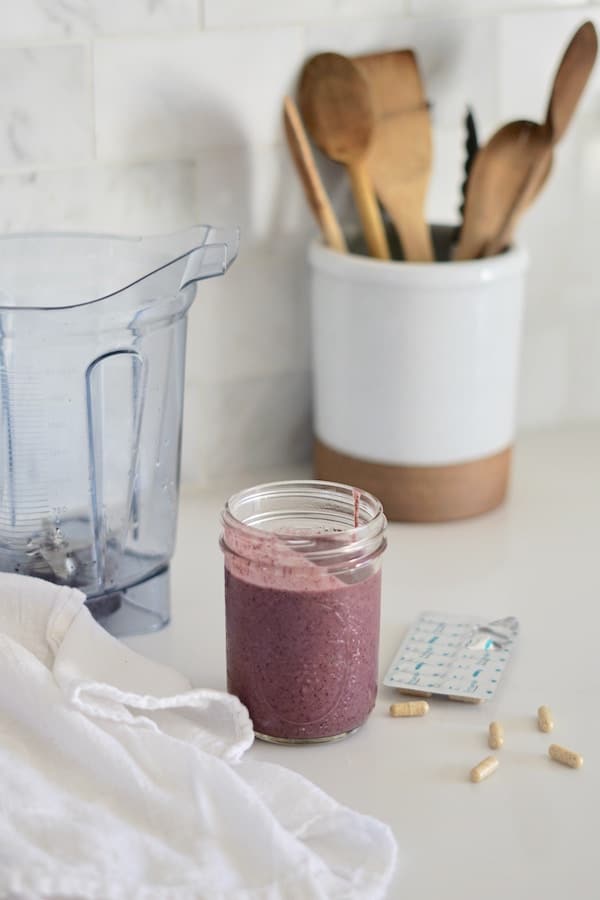
These are a serious no no. Laxatives and over the counter treatments can be easily abused in adults, never mind in the teeny tiny bodies of babies, toddlers or even kids. Using laxatives (without medical supervision) for babies is not advised.
When to Get Help for Your Baby’s Constipation
If you’ve tried all of these strategies and your baby is still not able to poop, please consult a doctor. If your baby is also experiencing other symptoms aside from constipation like fever, abdominal distension, nausea, vomiting, weight loss, blood in stool, not eating, or slow weight gain, there may be something more serious else going on. I hope these strategies will help you and your baby get some relief and you and your partner can get back to your daily poop texts as usual.
Other Blog Posts You Might Like
- HOW TO START BABY LED WEANING
- HOW TO INTRODUCE PEANUT BUTTER TO BABY TO REDUCE THE RISK OF PEANUT ALLERGY
- SOY BASED BABY FORMULA | IS IT SAFE FOR VEGAN BABIES?
What do you find help with constipation relief for baby? Do you have any foods that you find tend to be the culprit when your baby is constipated? Leave us some tips moms and dads- we would love to hear from you!
Updated on April 1st, 2023

Abbey Sharp is a Registered Dietitian (RD), regulated by the Ontario College of Dietitians. She is a mom, YouTuber, Blogger, award winning cookbook author, media coach specializing in food and nutrition influencers, and a frequent contributor to national publications like Healthline and on national broadcast TV shows.

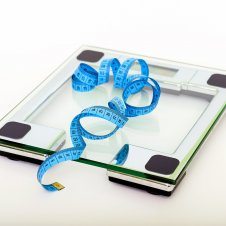



sweetiemom says
This article is one of the best articles I have ever read. Congratulations to the author, I distributed the article to my friends.
Abbey Sharp says
Amazing! Im so glad it was helpful
Deborah Brooks says
You have lots of great info for new moms!
Abbey Sharp says
Thank you!
Christine says
Hahaha I love what you said about you and your husband’s texts. Same here! ???? I needed this article about a month ago when my 6 month old had really bad constipation. SUCH great advice! We tried a few of these techniques and ideas and they definitely helped!
Abbey Sharp says
Aw thanks so much!
GiGi Eats says
So far Falkor poops amazingly well and there is LOTS of it. He is definitely a regular baby. We shall see if that continues as the weeks go on! I do give him probiotics and Vitamin D!
Abbey Sharp says
That’s amazing!
Jaclyn says
Thanks for the post! I’m an RD, dealing with my 15 month old and constipation. Yes, so heartbreaking when they are in so much pain! My daughter loves milk and eats very little solids otherwise. Most likely the culprit with little fibre intake. We have tried many different things. I find that if I soften bran buds and add them to yogurt it helps soften the stool. Otherwise, she will take prune puree or drink prune juice which helps but not dramatically. I talked to our NP who suggested restoralax. This surprised me as the label reads not to use if under the age of 18. So I definitely did not give this a try! Hard to get things regular with minimal solid food intake.
Abbey Sharp says
Totally. So tricky. Thanks for sharing Jaclyn